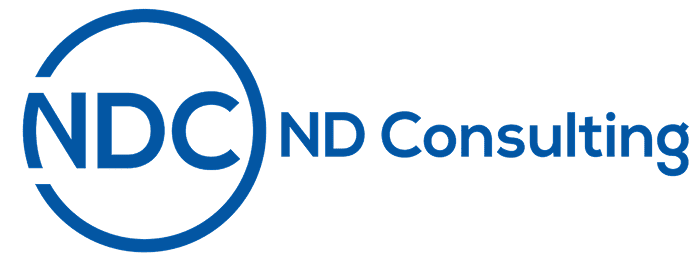Property managers working with HUD, LIHTC, HOME, Rural Development, or Public Housing programs know just how complex housing compliance can be. Deadlines stack up, regulations evolve, audits creep in, and one oversight can lead to penalties or lost funding. This is where Yardi Housing Compliance tools prove their worth.
Yardi Voyager offers specialized tools to manage regulatory obligations for affordable housing programs. But just having the system in place isn’t enough. Success comes down to how you use it.
Here’s a closer look at the most effective Yardi Housing Compliance strategies that can help your team cut hours off repetitive tasks and stay audit-ready year-round.
Centralize Compliance Workflows in Yardi Voyager
Many property management teams rely on manual processes and spreadsheets to track certifications, income changes, and lease renewals. These piecemeal methods create room for error.
Yardi Voyager centralizes the entire compliance lifecycle, from tenant intake and eligibility verification to re-certification and reporting. With workflows customized by property or program type, your team can track every required document, submission, and verification in one place.
Automate Certification and Re-Certification Schedules
Late certifications are a common compliance violation. Yardi Housing Compliance features allow property teams to set up automatic reminders for upcoming certifications and re-certifications.
You can configure alerts for 90, 60, and 30 days out, assign responsible staff, and track progress in real-time dashboards. Automating these timelines prevents missed deadlines and keeps files complete ahead of inspections.
Plus, when paired with RENTCafé Affordable Housing, applicants and residents can complete documents online, which helps reduce paperwork delays.
Use Real-Time Eligibility Calculations
Program eligibility rules vary significantly, especially between HUD and LIHTC. Income limits change annually, utility allowances vary by location, and deductions must be applied correctly.
Yardi Voyager calculates household income eligibility in real time based on the program type. It auto-applies income limits, deduction rules, and utility allowances based on HUD or state data.
This not only saves time during tenant intake but dramatically reduces the chance of incorrect move-ins or rejected files.

Stay Current with Regulatory Updates
Compliance rules evolve. One year it’s a new income verification method. The next year it’s revised student eligibility requirements.
Yardi regularly updates its compliance suite to reflect changes in HUD, IRS, and state guidelines. But your team must stay alert and apply these updates correctly.
Subscribe to industry updates, join Yardi user groups, and attend annual YASC events to stay informed.
Digitize File Reviews for Internal Audits
No one likes surprise audits. But internal file reviews can help teams catch issues before auditors do.
Using Yardi, compliance managers can run side-by-side reviews of income certifications, verify uploaded documentation, and flag inconsistencies in real time. Audit trails and electronic signatures keep files inspection-ready.
Take Advantage of Role-Based Permissions
Miscommunication between leasing staff and compliance teams often results in missed paperwork or non-compliant tenant files. One way to reduce this risk is by using role-based permissions in Yardi.
Assign specific access levels for leasing agents, compliance officers, and property managers. This helps maintain data integrity, as each team member sees only what they need to complete their tasks. It also reduces the risk of incorrect data entry.
Integrate RENTCafé Affordable Housing for Resident Self-Service
Affordable Housing allows prospective tenants to complete pre-applications, upload income documentation, and respond to compliance requests online.
This reduces the need for in-person appointments and cuts down on incomplete or missing documents. It also speeds up tenant onboarding.
Train Your Team on Program-Specific Workflows
Each housing program, whether LIHTC, HOME, or RD has its own reporting, income qualification, and recertification requirements. Mistakes often happen when staff members try to apply the same workflow across multiple programs.
Yardi Voyager allows property teams to set up program-specific workflows. But the software is only as good as the users. Ongoing training is critical.
Set quarterly refresher sessions. Invite external trainers with program-specific expertise. Have internal experts host knowledge-sharing sessions.
A well-trained team reduces rework, speeds up compliance reviews, and passes audits with fewer findings.
Standardize Document Management
Paper files can get misplaced or incomplete. Even scanned documents stored in folders outside Yardi introduce risk.
Yardi Voyager lets users upload and associate documents directly with tenant records. This keeps everything from income documents, leases, certifications, and correspondence in one place.
Create document naming standards, file retention timelines, and regular quality checks to maintain clean digital records.
Build Custom Reports for Program Tracking
Housing compliance is data-heavy. From occupancy by AMI level to unit set-aside compliance, there are dozens of metrics to monitor.
Use Yardi’s custom report builder to create dashboards tailored to each program type. Automate monthly summaries, compliance status checks, and delinquency reports.
This helps your team move away from manual Excel logs and provides real-time visibility into risk areas. Custom reports also make it easier to prepare for audits or respond to regulator requests quickly.
Prioritize Pre-Audit Checklists and Mock Reviews
Waiting until the week of an audit to prepare files is a recipe for stress. Instead, implement a rolling audit prep system in Yardi.
Each month, randomly select files for mock reviews. Run them through the same compliance review criteria an auditor would use. Log the results, assign follow-ups, and document findings.
Mock reviews help identify systemic issues, such as under-documentation or recurring tenant errors, and build a culture of readiness.
Final Thoughts
Compliance isn’t just about checking boxes. It’s about protecting your funding, housing your community, and avoiding costly setbacks. Yardi Housing Compliance tools offer an opportunity to streamline how your team tracks regulations, communicates with residents, and prepares for audits.
But results don’t happen automatically. With the right strategies, centralized workflows, automation, staff training, and data visibility, you can simplify your process and protect your portfolio.
The goal isn’t just passing audits. It’s building a system that works so efficiently, audits become part of your routine rather than a disruption.
If your compliance team is stuck in manual workarounds or scrambling before every inspection, it may be time to revisit your Yardi setup. The right configuration and training can shift your team from reactive to proactive and that shift makes all the difference.





